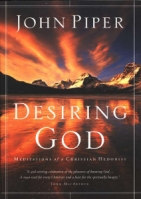Whenever I’m invited to preach by a church I’m not familiar with, I try my best to attend one of their Sunday services prior to the engagement. There are plenty of good reasons for doing so and here are some of them:
(1) You get to worship with them.
One of the best things about visiting churches is that you get to worship with other believers in the Kingdom. It’s so much fun to meet other Christians and get to know them. In the end, we’re all family here.
(2) You can build rapport.
Visiting a church in advance allows you to enter their community as a believer and not just somebody who’s there to do them a service. You get to converse with them and build friendship. The congregation will become more at ease when you preach since a positive relationship has already been established.
(3) You get a sense of their needs.
One of the marks of a good sermon is its relevancy. You want to show people that the Word of God is ultimately relevant to whatever they’re going through. And so getting to know the audience is crucial for understanding what their needs and struggles are. You can best show how God’s message applies to them if you’ve been in their community and have heard their stories.
(4) You can gather important information.
As you worship with them, you’ll be observing important things that will be helpful for when you preach there. You can observe how many people are in attendance and what the demographic is. This might help shape how you deliver your sermon. You can also see what equipment they have. Do they have microphones? Do they have a computer and a projector to display visual presentations? Is there a lectern or a pulpit? You can also find out what attire is appropriate in their setting and dress accordingly.
(5) You get to ask questions and make requests.
Don’t be afraid to ask questions or make requests (like moving the lectern forward so that you can stand closer to the audience). I find that most churches are quite accommodating especially if you ask nicely.
Whenever possible, I highly recommend visiting churches in advance. Such a practice can only help make your sermons much clearer, more relevant, and more memorable in the end.
Join the discussion: What other good reasons are there for visiting churches prior to a preaching engagement?
EDITED: This article has been edited (01/17/2014). In the second subtitle, the word repertoire was replaced with the correct term rapport. Thank you to Pastor Jon for pointing this out.
See other preaching ideas here: Thoughts on Preaching






 I was scavenging around our Manila home (where I’m currently on vacation) looking for something to read when I spotted my copy of John Piper’s, Desiring God¹. The pages of the book have started to brown—a sign of its old age. I don’t remember much about the book except for its excellent discussion on the sovereignty of God.
I was scavenging around our Manila home (where I’m currently on vacation) looking for something to read when I spotted my copy of John Piper’s, Desiring God¹. The pages of the book have started to brown—a sign of its old age. I don’t remember much about the book except for its excellent discussion on the sovereignty of God.




